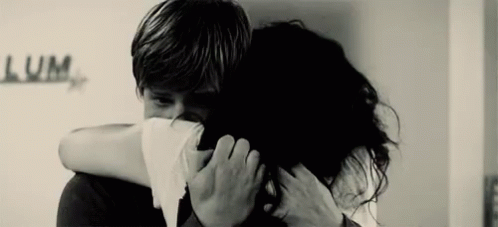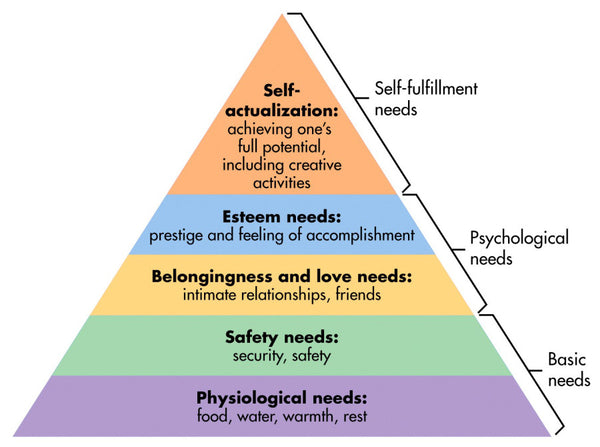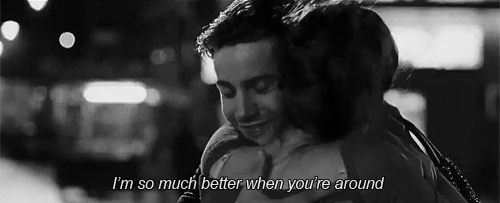How to fight depression, anxiety and mental health issues with touch of love
The Mason jar and honey bee story:
Once my uncle said you can trap honey bees in the bottom of Mason jar without lids because they don’t look up, they just walk around bitterly bumping into the glass walls. This story describes a little bit the feelings of those who are going through depression. You might know there is a way to get out, but still, you are bound to the repetitive thoughts, behaviour and feelings.
Depression is a global epidemic:
About 10% of the world population is suffering from depression. More than three million people suffer from depression worldwide, an increase of more than 18% between 2006 & 2015.
Despite the USA, being one of the wealthiest countries in the world and spending a huge amount of money in the healthcare system, it is very hard to find solutions for these mental health issues. Because depression deals with internal suffering which cannot be seen physically. Even greatest comedians of our time like Jim Carey, Robin Williams, Woody Allen and many more have gone through depression and undertaken antidepressants like Prozac upon the prescription of their doctors.
Why does depression happen?

We all have a set of needs that the psychologist Abraham Maslow has defined and categorised in 5 main stages. Maslow's hierarchy of needs is a theory in psychology comprising a five-tier model of human needs, often depicted as hierarchical levels within a pyramid.
Needs lower down in the hierarchy must be satisfied before individuals can attend to needs higher up. From the bottom of the hierarchy upwards, the needs are: physiological, safety, love and belonging, esteem and self-actualization.

And the causes of depression can be linked to people not being able to fulfil some or one of those needs.
Some of the main reasons for depression and mental health issues are:
- Abuse. Past physical, sexual, or emotional abuse can increase the vulnerability to clinical depression later in life. This affects our feeling od security - our Safety needs.
- Certain medications and serious ilness. Some drugs, such as isotretinoin (used to treat acne), the antiviral drug interferon-alpha, and corticosteroids, can increase your risk of depression. This affects our Physiological needs - we need to feel healthy to feel good.
- Conflict. Depression in someone who has the biological vulnerability to develop depression may result from personal conflicts or disputes with family members or friends. This affects our Love and Belonging needs.
- Death or a loss. Sadness or grief from the death or loss of a loved one, though natural, may increase the risk of depression. Also connected to our Love and Belonging needs.
- Genetics. A family history of depression may increase the risk. It's thought that depression is a complex trait, meaning that there are probably many different genes that each exert small effects, rather than a single gene that contributes to disease risk. The genetics of depression, like most psychiatric disorders, are not as simple or straightforward as in purely genetic diseases such as Huntington's chorea or cystic fibrosis. Some of the causes are purely genetic.
- Major events. Even good events such as starting a new job, graduating, or getting married can lead to depression. So can moving, losing a job or income, getting divorced, or retiring. However, the syndrome of clinical depression is never just a "normal" response to stressful life events. This might be connected to the Love and Belonging needs, that are not met and thus create too much stress.
- Other personal problems. Problems such as social isolation due to other mental illnesses or being cast out of a family or social group can contribute to the risk of developing clinical depression. Again Love and Belonging needs.
- Substance abuse. Nearly 30% of people with substance abuse problems also have major or clinical depression. Even if drugs or alcohol temporarily make you feel better, they ultimately will aggravate depression. Substances are often correlated to mental health issues and they surely do not help in fighting them.
What makes a happy life?
If we analyse the reasons for mental health issues and research on what makes a good and happy life, maybe we can come to some kind of conclusion about how to fight depression and anxiety.
What keeps us happy and healthy as we go through life? If you think it's fame and money, you're not alone – but, according to psychiatrist Robert Waldinger, you're mistaken. As the director of a 75-year-old study on adult development, Waldinger has unprecedented access to data on true happiness and satisfaction and this is what the Grant Study has found and Dr. Waldinger presents.
If you were going to invest now in your future best self, where would you put your time and your energy? There was a recent survey of millennials asking them what their most important life goals were, and over 80 percent said that a major life goal for them was to get rich. And another 50 percent of those same young adults said that another major life goal was to become famous.
And we're constantly told to lean in to work, to push harder and achieve more. We're given the impression that these are the things that we need to go after in order to have a good life.
And this is all fine, if we look at Maslow's pyramid of needs - we do need to work on Esteem needs and Self-actualisation. However the 75 years long study found something that is a single one most important factor in building a happy life:

"Good relationships keep us happier and healthier. Period. " - Dr. Robert Waldinger
What are the benefits of good relationships?
Waldinger says: "We've learned three big lessons about relationships. The first is that social connections are really good for us, and that loneliness kills. It turns out that people who are more socially connected to family, to friends, to community, are happier, they're physically healthier, and they live longer than people who are less well connected. And the experience of loneliness turns out to be toxic. People who are more isolated than they want to be from others find that they are less happy, their health declines earlier in midlife, their brain functioning declines sooner and they live shorter lives than people who are not lonely. And the sad fact is that at any given time, more than one in five Americans will report that they're lonely.
And we know that you can be lonely in a crowd and you can be lonely in a marriage, so the second big lesson that we learned is that it's not just the number of friends you have, and it's not whether or not you're in a committed relationship, but it's the quality of your close relationships that matters. It turns out that living in the midst of conflict is really bad for our health. High-conflict marriages, for example, without much affection, turn out to be very bad for our health, perhaps worse than getting divorced. And living in the midst of good, warm relationships is protective.
And the third big lesson that we learned about relationships and our health is that good relationships don't just protect our bodies, they protect our brains. It turns out that being in a securely attached relationship to another person in your 80s is protective, that the people who are in relationships where they really feel they can count on the other person in times of need, those people's memories stay sharper longer. And the people in relationships where they feel they really can't count on the other one, those are the people who experience earlier memory decline."
So how can we fight depression, mental illness and anxiety consciously?
"If you want to change the world, go home and love your family." - Mother Theresa

We can take small steps one at a time. Start by greeting our loved ones and looking them in the eye. Hugging them every day when we meet and when we depart. Injecting them with that love and trust hormone Oxytocin, scientifically speaking. And letting them know unconsciously that they are loved, just by giving them those touches of love.
So on this #WorldMentalHealthDay I invite every one of you to think extra about the hugs, kisses and touches you can give your close ones. And help our world in this fight.
Yours,

Anna Andersone, CEO
Be-with Clothing
www.bewithclothing.com
P.S. We've created clothing for hugs to remind us of hugging every day in a fun way! Check it out:



